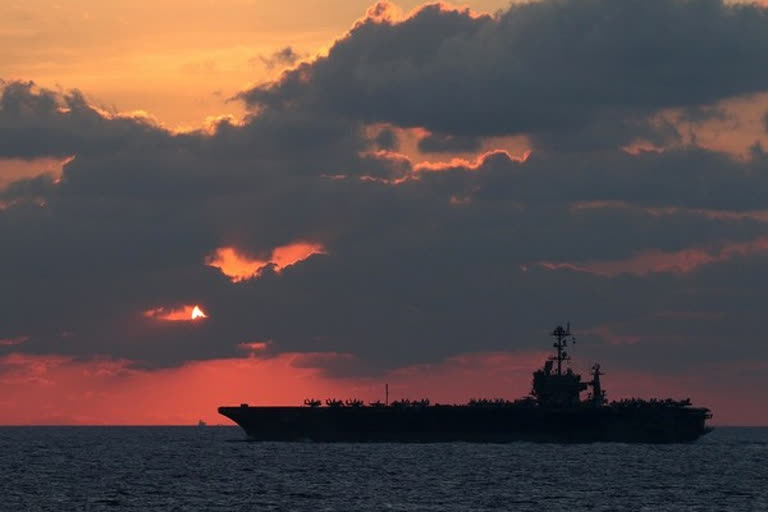Hong Kong: The United States has announced a plan to integrate its maritime forces, including the US Navy, Marine Corps and Coast Guard, over the next decade to counter China's influence in the South China Seas, according to the South China Morning Post (SCMP).
The strategy, titled Advantage at Sea and published last month, defined the US navy's objectives as "preserving freedom of the seas, deterring aggression and winning wars".
It stated: "China's behaviour and accelerated military growth place it on a trajectory that will challenge our ability to continue to do so. We are at an inflexion point."
Laura Zhou, writing for SCMP opined that the new strategy will formalise ways of countering China's coastguard, which is used to project Chinese power and assert its claims in the disputed waters.
The Chinese government claims nearly 90 per cent of the resource-rich South China Sea, based on what it calls its nine-dash line, which has been fiercely challenged by its neighbours including Vietnam, the Philippines, Brunei and Malaysia. China's claim was ruled in 2016 by a UN tribunal to have no legal basis - a verdict Beijing rejected, reported SCMP.
Read:| Indian naval ship conducts 'passage exercise' with Vietnamese Navy
Owing to its geostrategic location, the waterway, one of the busiest in the region, has become a potential flashpoint between China and the US.
Unlike its navy and marine corps, which fall under the US defence department, the US' coastguard operates under the homeland security department during peacetime, making its work less sensitive [than overtly military actions] when engaging with Southeast Asian countries that have long been reluctant to take sides in the great power competition between China and the US.
Derek Grossman, a senior defence analyst with the US think tank the Rand Corporation, said the intent was to use "more mobile and less-lethal or non-lethal platforms to contest China's de facto presence in disputed waters".
Moreover, the US is seeking to expand its "ship rider" agreements to claimant states in Southeast Asia, to give it legitimate access to the disputed waters of the South China Sea.
Under those agreements, a country's patrol officials are allowed to board law enforcement vessels or aircraft of the US Coast Guard while they are on patrol, during which the former can authorise the latter to take action on their behalf.
To counter China, the US since 2010 has signed bilateral ship rider agreements with 11 Pacific island nations for joint law enforcement operations to counter illegal fishing, reported SCMP.
"Signing such agreements in effect is a cession of sovereign rights by the claimant states to the US in their exclusive economic zones, which will make the disputed waters in the South China Sea 'waters subject to the jurisdiction of the US', thus legitimising the US Coast Guard's presence in the South China Sea," said Yan Yan, director of the Research Centre of Oceans Law and Policy in the National Institute for South China Sea Studies.
Further, Yan opined that it may increase the risk of maritime conflict. Philippine law enforcement officers might board US coastguard vessels to carry out operations against Chinese fishers in waters around Scarborough Shoal - claimed by both the Philippines, in whose exclusive economic zone it lies, and China, which calls it Huangyan Island.
"Such cooperation between the US and Southeast Asian nations who claim parts of the South China Sea have been growing steadily, largely over deepening concerns about China's powerful coastguard fleets, which Beijing has relied heavily on to project power and assert its maritime claims, said Zhou.
Chinese Coast Guard ships have played a leading role in several recent grey-zone activities, including in fishing disputes off Indonesia's Natuna Islands and the stand-off with Vietnam over Vanguard Bank.
Meanwhile, the US and its allies, including Japan, have offered capacity-building programmes, training and equipment transfers to their coastguard counterparts in Vietnam, the Philippines, Malaysia and Indonesia, seeking to modernise their capability despite a wide gap in scale and sophistication with the Chinese coastguard.
The US and Vietnam have signed a memorandum of understanding in July to enhance Vietnam's law enforcement and fisheries management through information sharing and technical programmes to combat illegal fishing in SCS.
ANI
Read:| Japan ramping up pressure on China over South China Sea: Report



